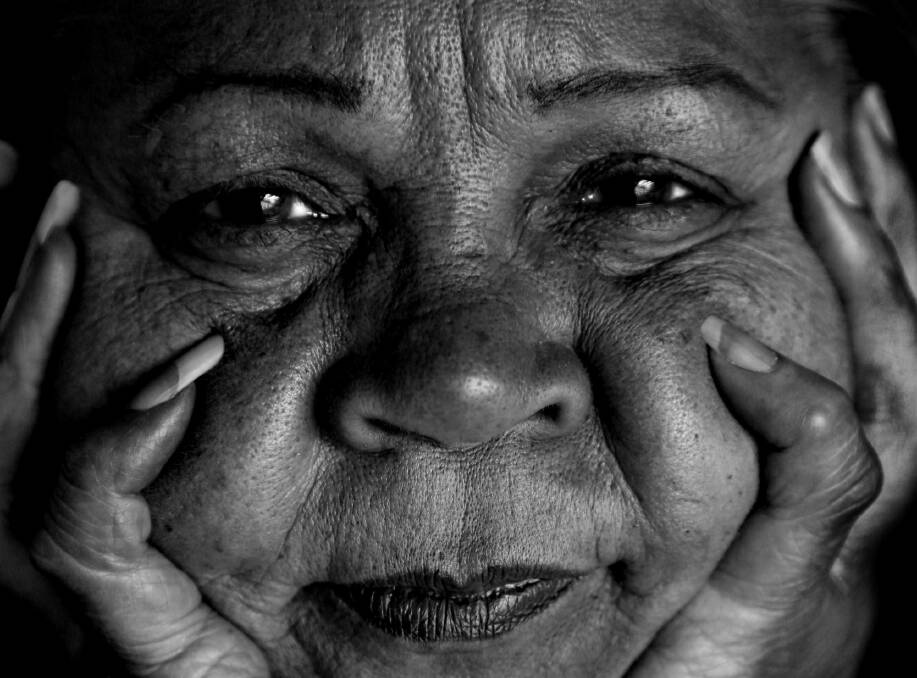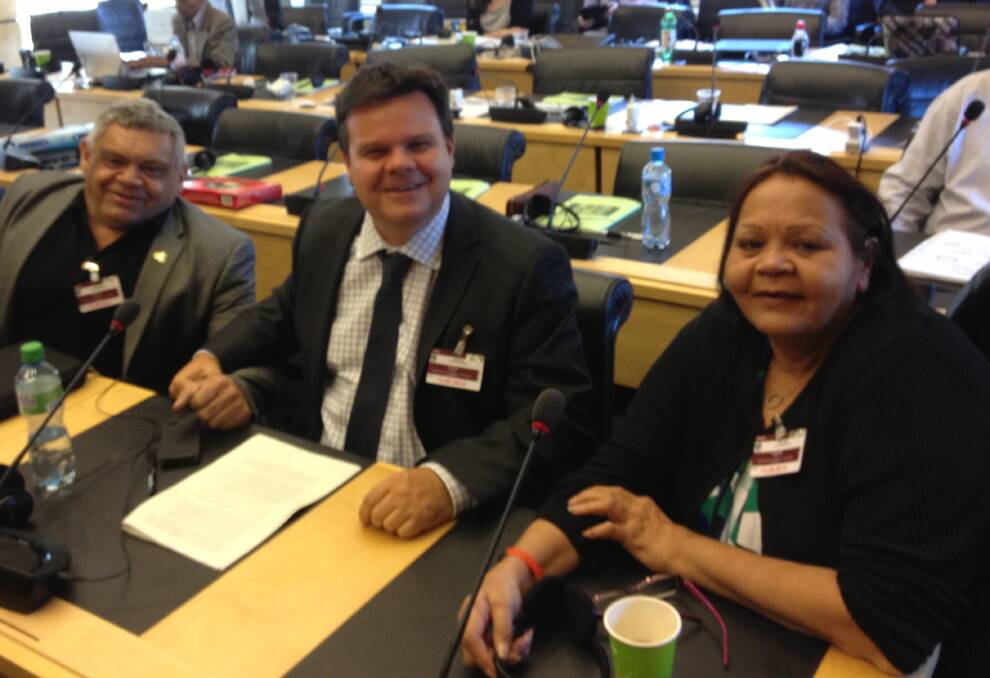
AT A time in life when many are looking to cut back on work, narrowing their focus, Aboriginal Elder Aunty Gayle Rankine has taken on an international role. Earlier this year she was announced as chairperson of the Indigenous Persons with Disabilities Global Network (IPWDGN), an organisation consisting of members of the seven geopolitical regions of the United Nations.
Subscribe now for unlimited access.
or signup to continue reading
This is on top of her already busy role as chairperson of First Peoples Disability Network Australia (FPDN), the peak body in Australia advocating for Aboriginal and Torres Strait Islander people with disability.
“All the experience I gain here I take overseas and vice versa,” Aunty Gayle said.
“We want to get knowledge out to our people, the knowledge of human rights and what their basic rights and entitlements are.”
One of her key goals is to ensure all indigenous Australians understand the eight principles of the United Nations Convention on rights of persons with a disability, to which Australia is a signatory.
The new role also allows her the opportunity to take knowledge to the rest of the world which lags behind Australia in some aspects of indigenous disability rights.
“Overseas the indigenous groups are looking to us as to how to get things happening.”
As the only nationally constituted organisation governed by indigenous people with disability in the world FPDN is a unique organisation.
“When we see other indigenous groups they’re struggling even to be recognised in their own country by their own people.”
“They’ve got a lot to fight through to get that recognition and they are also dealing with mining companies and the military,” she said.
Naturally these countries are interested on how we set-up the organisation she explains.
“FPDN is still relatively new. Initially there were small pockets of people doing work in different states but it never gained momentum as it wasn’t a priority. Now it is a priority. We are the peak body for Aboriginal and Torres Strait islander people and nowhere else in the world is there a set-up like that.”
While FPDN can’t influence other government’s they can support the fight and make a good case for them to be recognised.

While the Australian government now recognises and works with the FPDN there is still plenty of work to be done here.
A Ngarrindjeri woman, Aunty Gayle was born in Raukkan on Lake Alexandrina in South Australia. She has extensive grassroots knowledge of the needs of people with disability across urban, rural and remote communities. Her first-hand knowledge comes from having lived the experience as a person with physical disability and as a carer of relatives with physical and neurological disability.
She says there is still a lack of knowledge of cultural protocol when dealing with people with disabilities and little understanding of the specific needs of indigenous people with disability.
The justice system in Australia also presents obstacles with people in detention unfit to plead.
“A lot of people with mental health issues haven’t been diagnosed. They’re sitting in custody as their disability hasn’t been recognised,” she said.
“You know within your own community how the current government structure for persons with disability is totally dysfunctional and these people in charge need to really think about it and listen to the people about their needs.”
FPDN is working closely with government in these communities to help roll out the National Disability Insurance.
“It is not about what we would like, but what their needs are in each individual community. It’s not one size fits all there are different needs for different communities.”
She is optimistic for the future if the foundations built now are rock solid, but knows there will come a time when her disabilities prevent her from participating at such a high level.
“We need to build up the youth perspective and give them the knowledge to carry on the journey, bring them into the fold now and get them used to operating at this high level at the UN,” she said.

